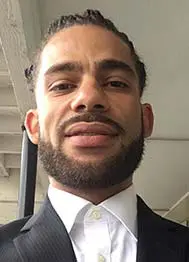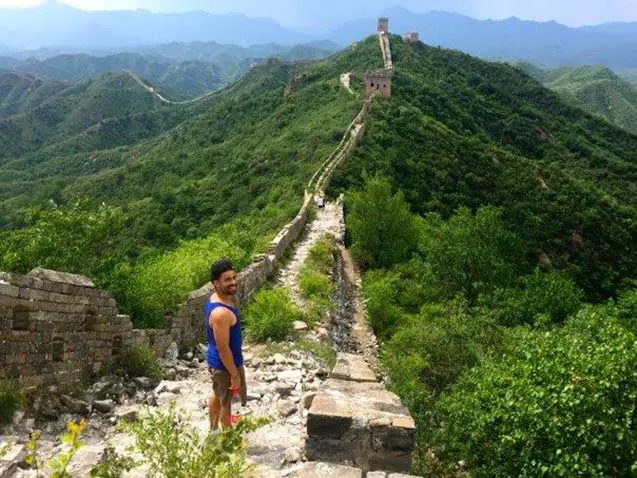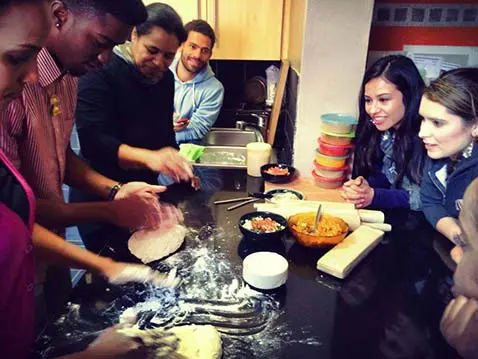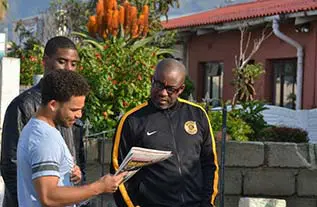RISE PERSPECTIVE
April 2, 2018
Education Abroad Gives Black Student-Athletes Greater Sense of Identity
Editor's note: Names of students interviewed have been changed in keeping with research protocol.
By Devin Walker

While back student-athletes in revenue-producing sports are often the "breadwinners" for their universities, the demands to focus almost exclusively on their sports limits them from engaging in one of the most valuable collegiate experiences, education abroad.
Instead, many black student-athletes come to define themselves through their role as "athlete," making their transition out of sports quite challenging.
In their 2011 article, "Meet Me at the Crossroads: African American Athletic and Racial Identity," researchers Dr. Albert Bimper and Dr. Louis Harrison suggest that for some black student-athletes "sports is more than merely a game to play, rather it's a means of defining self" and the role of athlete "may dominate their alternative social and personal identities." Education abroad has the ability to disrupt the belief that "sports is the only way out," by expanding black student-athletes personal and professional identities. However, it is up to institutions to be intentional about developing programs that speak to the unique experiences of black student-athletes.
Education abroad challenges students to understand themselves and their identities outside of the American context. For black student-athletes who have been revered for their athletic exploits at the expense of other aspects of their identity, this can be an extremely powerful and liberating experience.

"My experience in Ghana changed my life and helped me realize how much more I have to offer than my athletic skill set," said Malcolm, a former Division I football athlete. Upon returning to school, Malcom felt more confident in all areas of his life including athletics and academics. He was named captain of his team and also enacted a professional development plan for himself that today has him in law school studying ethics and justice within the law.
While demand for study abroad has increased, the Institute of International Education found study abroad participants are overwhelmingly white (72%) and female (67%). Black students are one of the least likely groups to participate, making up only 5% of study abroad students, let alone black student-athletes.
However, in recent years, many colleges and universities have begun developing service-learning trips for their student-athletes, where selected athletes from a variety of teams travel abroad to conduct a community service project. While there are still many challenges to engaging black student-athletes in these programs because of their unique time demands, a growing number of prominent athletic institutions have found short-term service-learning trips are one of the most effective ways to engage their black student-athletes in education abroad.
To provide black student-athletes unique international experiences within such a limited timeframe, some programs unintentionally reinforce deficit-oriented ideas of the so-called "Third World." This occurs when programs don't thoroughly engage countries' history, culture and identity, instead positioning them as pathologically impoverished and in desperate need of American support and aid. While improving black student-athletes' identities is critical, it shouldn't be at the expense of the international citizens with whom they engage.

Here, I offer four suggestions for how to make these service-learning programs as meaningful and transformative as possible:
- Make the pre-trip meetings count with critical and uncomfortable conversations. Engage the country's history. What is their relationship with colonialism? How are the remnants of that system still alive? What is the World Bank? The IMF? What does "Third World" really mean? What role has the United States played in their history … the good, the bad and the ugly?
- Use the time before departure to team build and connect with one another, meaning both student-athletes and trip organizers. Once abroad, students will find themselves in uncomfortable situations, questioning what they think they know, which is great. But for participants to engage each other in uncomfortable conversations, they need to have previously established trusting relationships.
- Read a historical fiction or some other engaging piece of writing, written from a native of that country. Learn to see the country and the world through their eyes.
- Upon return, be sure to have a follow-up meeting so students have the opportunity to reflect and decompress together. International experiences, especially those based in service learning, can be emotionally trying, so it's important students have the opportunity to engage with others who understand their experience.
My experiences studying abroad were transformative and life-changing, just as they were for the black student-athletes with whom I spoke.
One student, Charlie, who traveled to the Dominican Republic in 2015, described the experience as "the best 10 days of my life." While he had traveled around the country for athletic competition, he had never been out of the country and says his most-prized possession from college is his passport. "It's a gift that keeps on giving," he said. "I learn something every time I have the privilege to use it."

Involvement in sports can be an enriching experience, but opportunities such as education abroad serve to broaden not simply athletes' athletic prowess but their intellectual and spiritual development. In the case of black athletes, such experiences can be particularly enlightening since it's critical to provide these students in particular with robust collegiate experiences.
Devin Walker is a Ph.D. student in the Department of Curriculum and Instruction at the University of Texas at Austin. His research interests include athletic identity, sport culture, youth development, black education, social justice education and international education. He teaches Socio-cultural Influences on Learning in the College of Education at UT, while also working for the Division of Diversity and Community Engagement. He has extensive experience living, working and backpacking abroad, having traveled to more than 30 countries. His nonprofit, The WorldWalker Foundation, provides educational and financial resources to help black students have international learning opportunities. He can be found on Twitter and Instagram @worldwalker85, on Facebook @worldwalkerfoundation and on LinkedIn.




Our
Partners
Stay
In Touch
Follow us on social media.